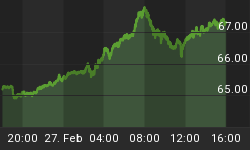It is important to understand how the fiat money system really works. Let's look at international trade. A Japanese flat screen maker will trade some TVs to Americans. They agree on the terms of trade, say one 50 inch TV per 2 bushels of pecans. Americans grow pecans, Japanese make TVs. The deal is sealed and the TV maker delivers the TVs, but the American says they will have to wait for harvest time for delivery of the pecans. The Japanese say, OK but give us a note - a promise to pay. So they begin to write up the note. "Party of the first part promises to pay Party of the second part ......". But wait, I have some ready made notes here that are just as good. We don't have to go through all this legal mumbo jumbo. These ready made notes are called Federal Reserve Notes, aka "dollars". Just like a private party lender can get a ready made note from any title company or stationary store avoiding the legal expense of a custom note.
So the transaction takes place. The Japanese deliver the TVs, we deliver the notes - dollars. Result: we have the TVs, they have the notes. Come harvest time, they return the notes and we deliver the pecans. Some will say that they merely purchased the pecans with their "dollars". But in essence what transpired was just a trade: TVs for pecans.
Now with the US Dollar as the world's reserve currency, virtually all international trade has been conducted in dollars. When Chile trades with Brazil, instead of paying with Chilean pesos and Brazil paying in Brazilian reals, they trade in dollars. Imagine if you will, if every US store had their own currency.You want a latte, pay in Starbuck "bucks"; shop at Walmart, pay in Walmart "walloons"; want to buy a blackberry, pay in RIMM "reals". How does Walmart buy from RIMM or Starbucks? This system won't work without a common medium of exchange. So it is with international trade. The common medium of exchange is the dollar.
Now every country has reserves - a rainy day fund if you will. And those reserves are held primarily in dollars (use to be almost exclusively in dollars). Oil is the industrial world's most important commodity and oil is traded in dollars. If the price of oil goes up, Chile might decide it needs more reserves, dollars, in order to have a 6 month cushion. So they come to the US and say "give us a 100 million more dollars". We happily oblige. Of course we don't just hand it over like so much monopoly money, we ask for something in return - like a couple of boatloads of their copper and some agricultural goods. The send us their goods, and we hand over the paper, that is dollars - which are just pre-printed Federal Reserve notes, that is to say promises to pay in the future.
The whole world has accumulated trillions (yes, that's a "T") of dollars of these reserves - Federal Reserve notes. So basically they send us their goods and we give them paper notes. Any wonder the US has been the most prosperous society on earth since World War II, that is to say since Bretton Woods was set up that established this dollar based system.
So we are rich, for now, but the world has a claim on us for trillions of dollars because all of these transactions are not really purchases, but as explained in the beginning of this article, merely an exchange of goods for notes.
So what happens when the dollar loses its reserve status? Well, foreigners will no longer need these dollars, these notes, and will hand in these notes for payment - a process called repatriation. With trillions of dollars flooding our shores, inflation will occur. Why is that? Because foreigners will not just be handing in these "notes", but rather calling for payment on them. So they will be buying our agricultural products, our manufactured goods, our companies, leaving us with less because the US has only a certain productive capacity, in the medium term at least, which will leave less for us to buy. We will become poorer. Because prices are determined by supply and demand and the trillions of dollars being repatriated will drive up demand while supply, over the medium term at least, is relatively fixed, prices will soar. With a given dollar income, higher prices will mean less purchasing power - impoverishment.
The dollar is losing its reserve status as any observer of international affairs can see. The only way out for the US is either to default on its debt to the world or face impoverishment. The truth is that this has been an ongoing process since 1971 when Nixon put international trade on a fiat money system. We have been accumulating debt and the time to pay up is coming upon us.
Given the stark choice of impoverishment or default, I believe that the choice to take, and the one that will be taken, is default, despite the shame and embarrassment. It is the choice facing Greece right now as well as underwater homeowners. It is time to wipe out the mistakes of the past and put the US, and the world, on a more sustainable economy.















